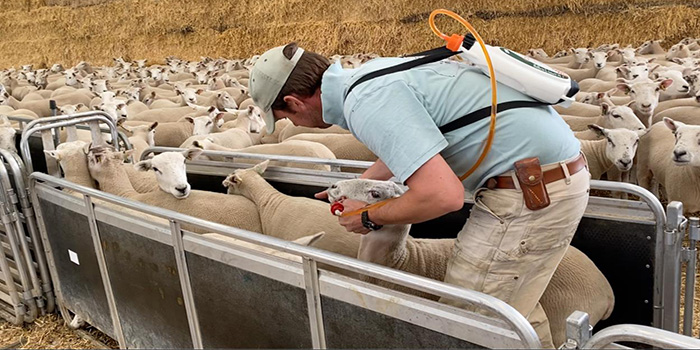As COVID-19 rumbles on around the world, Elanco has taken a look at what we can learn from this human disease outbreak that could be applied to managing disease risks on farms.
Matt Colston BVM&S, Cert.SHP, MRCVS, Elanco’s technical consultant, has some quarantine advice for SQPs that they can pass on to their farmers.
He said: “Prevention is better than cure on the farm, so make sure to keep those diseases out (e.g. sheep scab or infectious abortion in sheep and TB or BVD in cattle) that you don’t already have on the farm. Freedom of movement with no restrictions is convenient, but also allows free movement of disease. A little inconvenience and a little planning now can stop the spread of disease on farm and improve things in the long run.
“Secondly, keeping “newcomers and incomers” separate from “residents” until they have had time to show if they are carrying any disease, is always a smart move. Likewise, testing to prove they are free of disease, or giving an effective treatment before allowing any mixing, can have the same benefit in a shorter timeframe.”
For cattle farmers there are also statutory disease control programmes (such as for Bovine TB), and health accreditation schemes (such as the Premium Cattle Health Scheme or HiHealth Herdcare in GB and AFBI Cattle Health Scheme in NI) to reduce the risks of specific diseases moving from farm to farm with purchased cattle. Sheep farmers also have the Premium Sheep and Goat Health Scheme. Mr Colston continued: “These health schemes cover diseases that are not easy to test for and difficult, if not impossible, to treat effectively once animals are infected. For these diseases, the “border security” to safeguard the farm has to extend to the farm of origin – proving their disease-free status – before animals are allowed to travel.
“For those problems where effective testing or treatment is possible, a robust quarantine procedure will maintain “border security” for the farm. A good example is the SCOPS guidance on quarantine treatments for gut worms, which can be found HERE.
Mr Colston added: “We know that all sheep will carry a small number of worms, and even healthy sheep can carry anthelminthic-resistant worms. Making an effective quarantine treatment part of your routine is the best way to keep resistant worms and new worm species out.
“Resistance to older wormer groups (1BZ, 2LV, 3ML) is now fairly common so an effective quarantine treatment for gut worms relies on using one of the newer group 4-AD (monepantel, Zolvix) or 5-SI (derquantel) products.
“Establish an effective quarantine procedure that includes treatments to prevent the arrival of unwanted visitors.”


